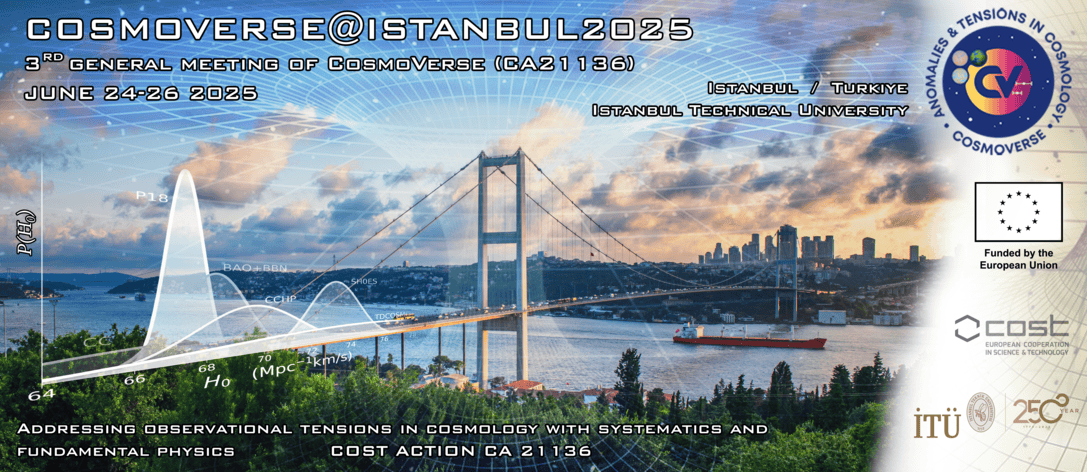Speaker
Description
I will discuss two research projects about testing DDE and Constraining high-\texorpdfstring{$z$}{z} reionization with cosmological data. First, we explore an extension of the $\Lambda$CDM model that introduces a time-dependent evolution of the pressure parameter $p$ in the dark energy fluid, where the corresponding energy density $\rho$ is derived by a continuity equation and the equation of state $w \equiv p/\rho$ evolves during the late-time expansion of the Universe. We model the pressure parameter using a Taylor expansion within the dynamical dark energy (DDE) framework, initially truncating at first order with a single additional parameter allowing deviation from the cosmological constant value, then extending to second order to demonstrate that observational data can constrain both parameters. Since no significant deviation from $\Lambda$CDM was detected for the relevant cosmological parameters, we did not include higher-order terms. We modified the publicly available CAMB code and performed Markov Chain Monte Carlo analysis, extending the $\Lambda$CDM parameter space to incorporate the pressure parameterizations. Second, we use Gaussian processes to give a model-independent reconstruction of the reionization history of the Universe constrained by the \textit{Planck} CMB measurements, providing consistent reconstruction of standard reionization at $z \lesssim 10$ and strongly constraining any additional high-$z$ reionization. We construct a new derived parameter expressing the high-$z$ contribution to the CMB optical depth, $\tau_{\rm highz}$, whose posterior distribution can be used to set accurate constraints on models for exotic energy injection, which we demonstrate for the case of decaying dark matter with particle mass in the range $\mathcal{O}(1\,\text{MeV})$. Our results can be recast to different models using the provided data and code available at: https://github.com/Cheng-Hanyu/CLASS_reio_gpr.

